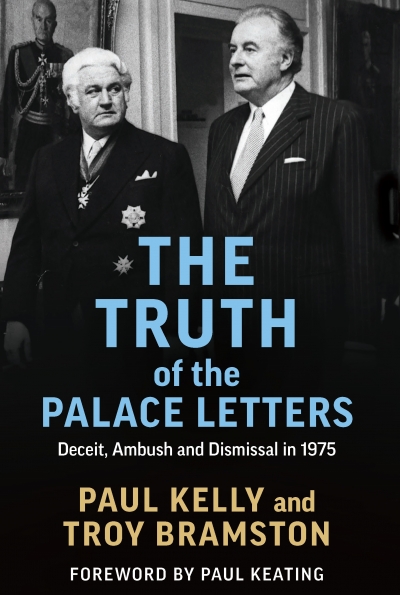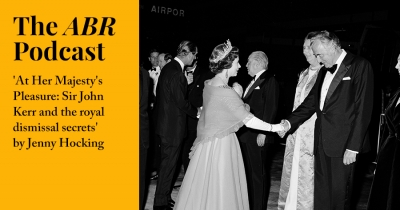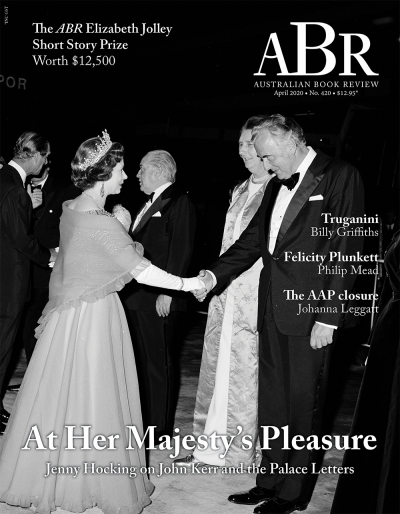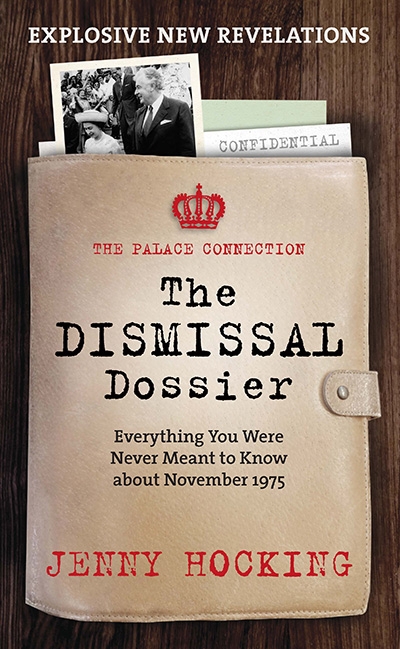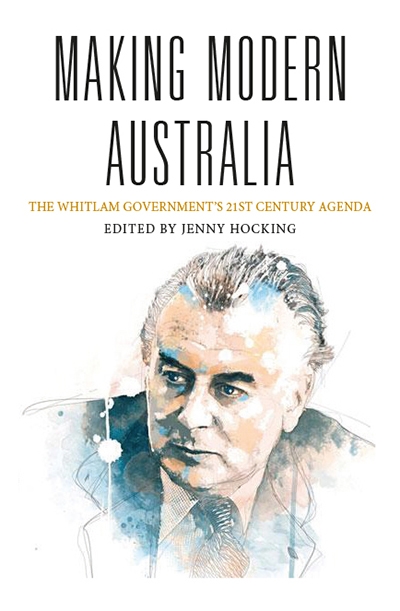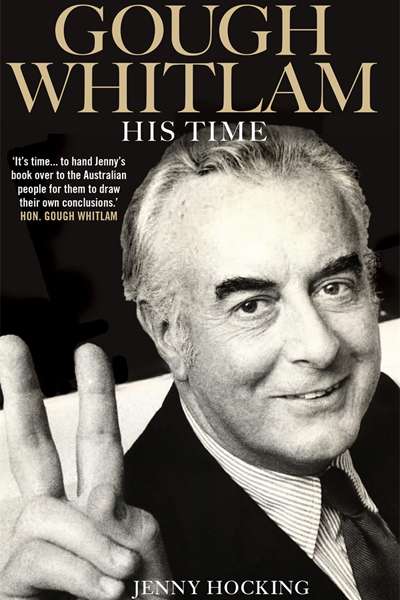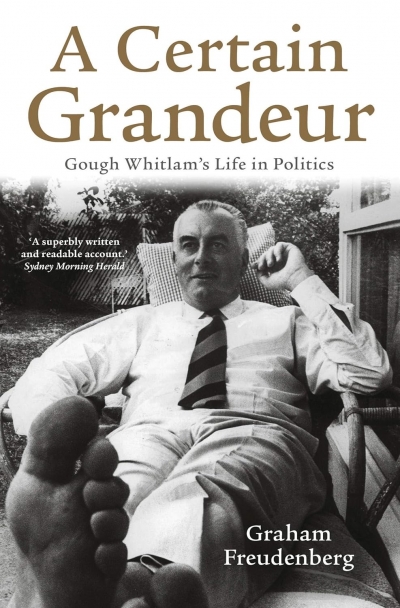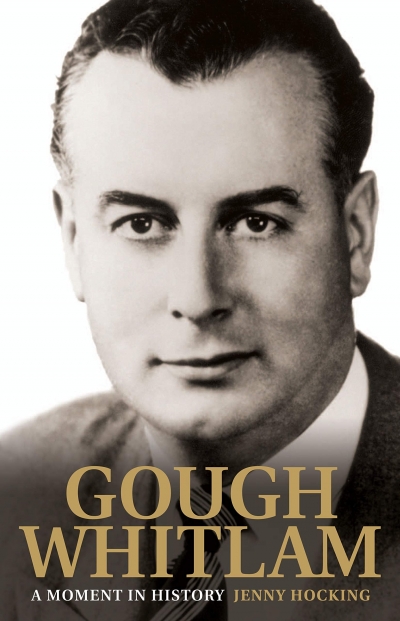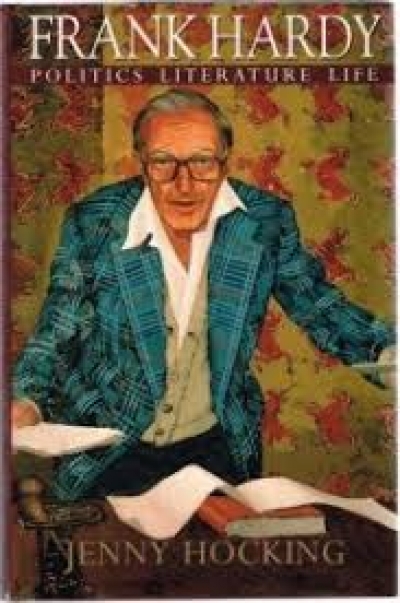Jenny Hocking
The Truth of the Palace Letters by Paul Kelly and Troy Bramston & The Palace Letters by Jenny Hocking
The National Archives responds to Jenny Hocking’s article on the 'Palace letters'
I read with interest Professor Jenny Hocking’s article ‘At Her Majesty’s Pleasure: Sir John Kerr and the royal dismissal secrets’ regarding the release of the ‘Palace letters’, the correspondence between Governor-General Sir John Kerr and Queen Elizabeth, covering the period of the dismissal of the Whitlam government (ABR, April 2020).
... (read more)'At Her Majesty's Pleasure: Sir John Kerr and the royal dismissal secrets' by Jenny Hocking
In 1975 the governor general, John Kerr, removed a democratically elected Labor government, amid great intrigue and subterfuge. The dismissal of the Whitlam government remains one of the blights on our democracy – perhaps the most controversial event in Australian political history. And yet the full record of what happened in the weeksand months leading up to the dismissal is still unavailable to Australian citizens because of the intransigence of Queen Elizabeth and the expensive lengths to which the National Archives of Australia have gone to suppress access to John Kerr’s correspondence with Buckingham Palace.
... (read more)The dismissal of the Whitlam government by the governor-general, Sir John Kerr, on 11 November 1975 was one of the most tumultuous and controversial episodes in Australian political history. The government had been elected on 2 December 1972 and returned at the May 1974 double dissolution, with Whitlam becoming the first Labor leader to achieve successive electoral victories.
... (read more)
